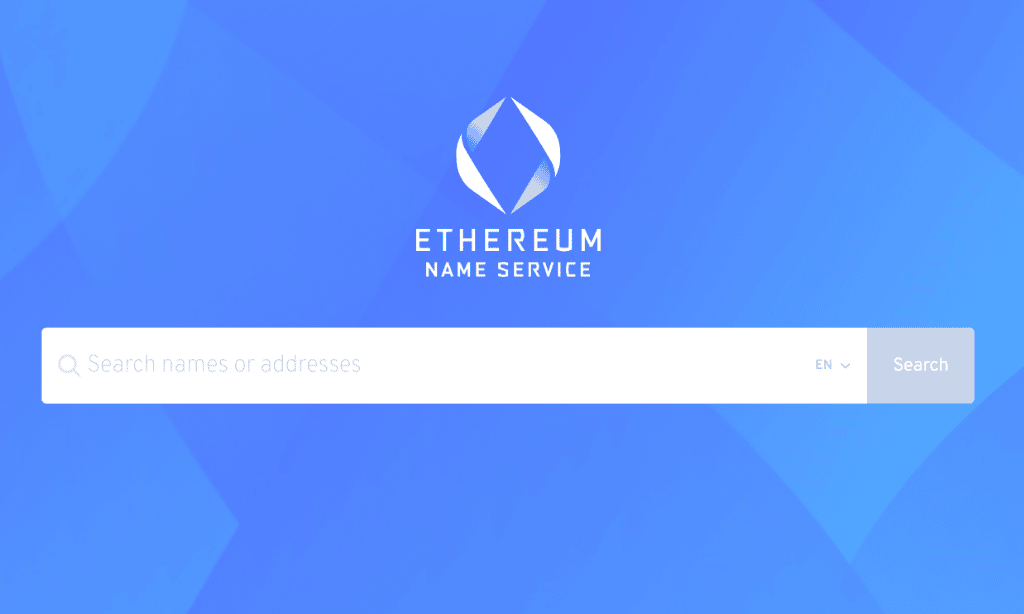Web3 has the potential to put users back in control of their digital identity. However, many of the core components of Web3 – like blockchain – are complex and full of jargon. Even simple tasks like receiving a crypto payment can be tricky. It’s a tall order to memorize your Ethereum address, much less relay it to a friend. Thankfully, new tools are coming out all the time to soften the landing for Web3 newcomers – and one of the most popular to date is the Ethereum Name Service (ENS).
What Is ENS?
The ENS is an idea that will be familiar to anyone who remembers typing out website addresses by hand in the days before Google. Put simply, it allows you to create a username for your Ethereum addresses.
Instead of keeping track of a typical Ethereum address (which looks like a nonsensical string of numbers and letters), ENS users pick a custom username that can be used for things like receiving Ethereum network payments.
Your ENS username could be your name, like ‘alice.eth’, or the name of your crypto-ready business, like ‘haircuts.eth’ or ‘pizzas.eth’. It could also be anything in between. You can also create subdomains like ‘pay.alice.eth’ for different purposes. ENS is a simple and easy way to personalise your Web3 presence.
One great thing about the ENS is that it does not compromise on the promise of Web3. There’s no central database of registered names. Instead, information about your ENS username is stored directly on the Ethereum blockchain. Under the hood, the entire ENS protocol is managed through smart contracts that register and resolve ENS names on the network.
How Popular Is ENS?
ENS has exploded in popularity over the last couple of years. More and more Ethereum-based dApps and protocols have added support for ENS usernames, including trading protocol Uniswap and NFT marketplace OpenSea. Major wallets like Coinbase Wallet, MetaMask and Trust Wallet all let you send and receive coins using ENS usernames. Many enthusiasts use their ENS username as their Twitter handle to signify their interest in the crypto space.
The popularity of ENS has spawned something of a gold rush, similar to speculation surrounding website domain names in the past. Many traders have tried their hand at flipping ENS names for profit. Some ENS owners have made windfall profits, with ‘exchange.eth’ selling for 6,660 ETH.
In 2021, beer company Budweiser created a buzz when they purchased the ‘beer.eth’ username for just under $100,000 (USD), and shoe giant Nike has acquired ENS usernames through its Web3 arm RTFKT.
Getting Your Own ENS Address
Getting an ENS address is a pain-free process. You can register an ENS using any Ethereum address you control. And unlike regular domain names, no personal information is required. All you need is a good idea for an ENS name (one that isn’t currently in use) and a bit of ETH to pay for the registration.
Start by heading over to the official ENS app at app.ens.domains. Once you connect your Ethereum wallet, you can pick a name and decide on how long you want to hold on to it. Like web domains, ENS names are registered for a fixed period rather than forever. Short names cost significantly more to register, whereas names that are five characters or longer start at $5 (USD) per year.
You also have a few choices for the TLD for your name. While .eth is the most popular, you can also use .com, .org, .io, and more – provided that you own the corresponding web (DNS) address. You can use the ENS app to manage any usernames you have registered, assign different addresses to them, transfer them to a new owner or renew them ahead of time.
The Ethereum Name Service may be a simple concept at its core, but it has made a splash in the Web3 space, allowing users everywhere to customise their blockchain identity. An interesting ENS name is a great way to show your crypto-savvy friends that you’re at the cutting edge of Web3 innovation.

